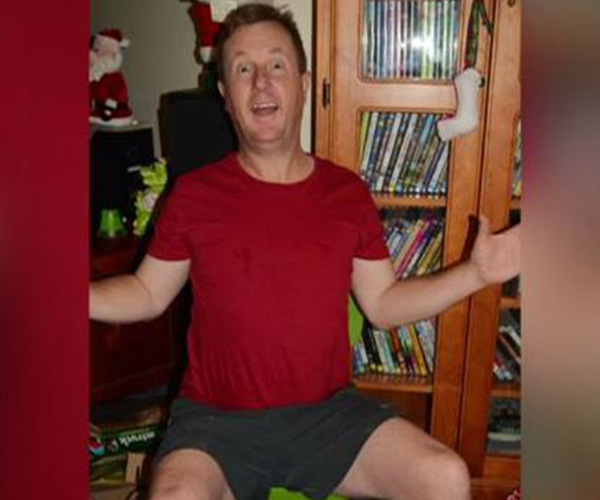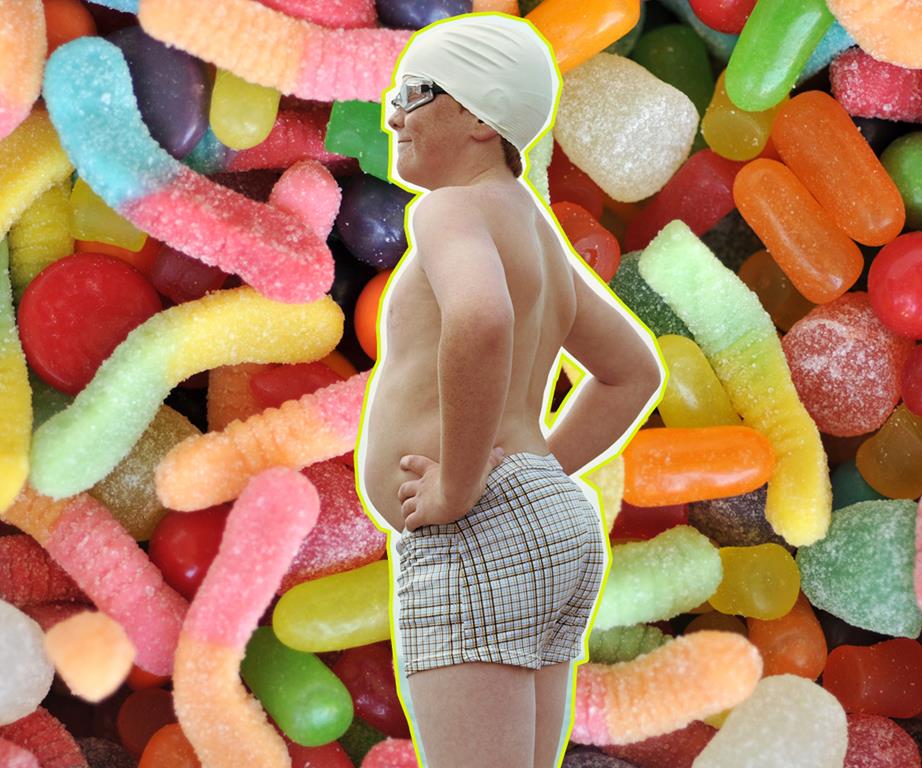In the car on the way to the prison, the crew was unusually quiet.
We were due at the prison at 9am to see Bernard McGrath, a former brother of John of God, now a convicted paedophile, serving 39 years for crimes against children.
No one knows, or likely ever will, the total number of his victims but we knew of more than 50 children, molested and raped while he was Brother Bernard, a teacher and headmaster in residential schools run by the Catholic order of St John of God in Australia and New Zealand.
Throughout the rolling scandal of clerical child abuse in Australia, the voice we have not heard is the voice of the perpetrators.
I wanted to speak to these men to ask them face-to-face how they led their double lives, masquerading as our moral guardians while abusing children in their care, and to get from them what hidden details I could about the cover up by their superiors.
On these journeys when the interview ahead is hard, I will the journey to last longer, to give me more time to fix my method.
How do I approach a man whose crimes are so vile, so disturbing, crimes against vulnerable children?
The children in the schools run by St John of God were often wards of the state or children with behavioural or learning difficulties, shipped off to boarding schools run by sadistic men like Bernard McGrath, protected by his order and the high standing of the brothers in a naïve, trusting community.
I can’t let my revulsion at his crimes drag me off course.
But I’m also a mother of sons. They are older now than the victims were when they met McGrath, but I remember those years.
I was generally trusting of teachers and other adults with whom they interacted.
Too trusting, I think now of the system and individuals. It made me think about the role of parents in this candal.
The mothers and fathers I met during filming were full of pain, desperate but unable to turn back the clock to make different decisions.
They had sent their children into the hands of cunning and manipulative offenders.
Most didn’t notice any change in their children when the abuse happened and in the most painful cases, found out but didn’t believe them.

In the series, Sarah also examines the institutions that covered up the crimes, and how they did it.
(Credit: Photography by Chloe Paul. Styling by Jamela Duncan.)Inside the prison, the guards got us to set up in the empty visitors’ room, a large hall with a children’s mural painted in one corner, like a nursery. There were dozens of small round tables with stools screwed into the ground.
It meant McGrath and I would be sitting very close, almost knee to knee, although the permissions stated we were not allowed to touch him, except for the sound recordist when attaching his microphone.
McGrath peered through the glass of the heavy prison door, waiting with a guard for the airlock to open.
He walked towards me grinning, feigning surprise at the camera set up.
“Is this all for me?” he asked, swiping off his prison issue beanie.
I greeted him neutrally. I had seen him last in court during his recent trial where we had exchanged polite greetings.
It had taken time and patient negotiation to get this interview, both with McGrath and the prison authorities; it felt unnatural not to offer some small encouragement.
He sat down and tried immediately to draw me into a whispered conversation.
I was prepared for this; in court one of his team had warned that he would try to manipulate me.
I moved backwards on the stool, making him lean in further, shifting the power balance.
All substantial interviews take place on a platform of sorts, whatever the location, and you must control the space.
I felt a jolt of apprehension, not because of who McGrath was but the professional challenge of drawing him out.
There was a risk in putting criminals like this on camera, the material has to justify the affront.
The producer stood behind McGrath, careful not to catch my eye.
Behind me the camera man, Aaron, said quietly that we were ready to begin.

Sarah speaking to Bernard McGrath in prison. She was warned that he would try to manipulate her.
(Credit: Image courtesy of the Australian Broadcasting Corporation.)When we first contacted McGrath many months earlier, we knew he was a convicted child sex offender, but we hadn’t met his victims.
Since then we’d sat with men who were little boys in the schools where McGrath taught, their lives shattered by the consequences of the assaults on their young selves.
McGrath took them from their beds at night, or cornered them in the chapel, or the canteen, even the school bus.
He told some he loved them and made sure none would tell, picking especially vulnerable children and charming their parents when they visited the schools.
Paul was rare in the cohort of McGrath’s victims in that he seemed to have survived to adulthood with his life intact.
He had children, a partner who’d endured much to hold the family together, a comfortable house with dogs and birds (as for many victims we met, the uncomplicated love of animals was a solace).
Aged nine, as a pupil at Kendall Grange, McGrath made Paul trace the shape of animals in the hairs on his chest then raped him.
Paul told us he was no longer angry about the abuse he suffered, that the hate only hurt him but in front of his wife he told us he didn’t like being touched, that when she touched him in bed he was revolted.
Paul spoke to us because he wanted justice for the victims of McGrath who’d committed suicide.
Months later I met Paul’s parents at the court where McGrath was due to be sentenced.
Their shame at not knowing what was happening to Paul as a child was overwhelming.
They took refuge in the banal details of the proceedings, the formality, the kindly security guards, unable to speak about the abomination being described.

Cardinal George Pell’s conviction for child sex offences was Australia’s most high profile case in recent times, but the issues are far more widespread.
(Credit: Getty Images.)Our first meeting with a priest paedophile was at the start of filming for the series.
Vincent Ryan was a priest of the Maitland-Newcastle diocese who had already spent 14 years in prison. He was facing new charges from men who had been altar boys in his church in the 1970s. We were about to film his trial.
Routinely called a monster in media reports, journalists don’t know what other words to use to describe Ryan because his crimes are so terrible.
I went to Ryan’s apartment where he lived in Sydney, climbing the stairs almost reluctantly.
From a journalist’s point of view, I should have been excited.
These men at the heart of one of the biggest scandals in contemporary Australia had never spoken on camera; indeed, in the world there was only one former priest in the US who had ever given an interview, but I felt the taint of Ryan’s crimes and the responsibility of ensuring the interview had meaning.
WATCH BELOW: Investigative journalist Mike White explains why forensic evidence isn’t always decisive. Story continues after video.
It is basic to the job of a journalist to hold power to account and the system which protected these men and enabled them betrayed the entire community.
The account of that great wrong is far from complete.
Which is why I find myself sitting in a simple red brick apartment, opposite an old man with wet eyes.
The crime scene he created, with primary school-aged children, sitting on the bench in his sacristy, is sharp in my mind.
Victims and others in the series reflected on the outward ordinariness of paedophile priests.
As the Archbishop of Dublin Diarmuid Martin put it, “If they had horns nobody would go near them.”
Ryan appears ordinary but the camera finds him out over time.
He tried to hide his obvious intelligence as if it undermined his claim not to understand the person he was. It wasn’t sincere, rather a way to live with himself, cut off from the deeds.
On a trip to Ireland for the series, two leading figures described how behind closed doors, senior church officials blamed the children for the deeds of the priests who assaulted them.
Within a few minutes of our interview beginning, Ryan said something similar, not that the children were to blame but that children carried sin for the things he had done to them.
The idea was monstrous.
The interview went for hours, over two days because the material was exhausting to both of us.
Ryan had more of an idea of contrition than McGrath, but it was insufficient to match his deeds.
Could any human acknowledge crimes of this nature with the years of pain they cause? I don’t think so.
Ryan looked at me at one point, his eyes swimming with regret at what his life had become, self-pity at that moment.
He said whatever we thought of him, he was certain of God’s forgiveness.
I am slow to offence; it obscures critical thinking, but this outraged me.
Not because it wasn’t possible (according to his faith) but because he had not earned it – he was so far from understanding the effect of his crimes that he was nowhere near the extended hand of forgiveness.
The experience of making this series scored deep lines of sadness and understanding in me, of the crime, of the complicity of a powerful self-serving institution and above all the ruinous consequences of child abuse on an innocent being who is ripped from childhood in that moment but held down at the same time, as if underwater, by a powerful hand.
It is a nightmare from which very few awake.
I couldn’t have done it without the producer, Nial, and cameraman Aaron, who knew after each day we had to find ways to deflect the suffering lest it overwhelm us.
Like doctors and police and lawyers in this field and every profession that experiences this peculiar trauma, we found ways to manage the burden of the day; it may sound a strange note but as always, the way through is with humour aimed at ourselves and every mistake we made.

Sarah says that she and her crew hard to find ways to deflect the suffering so it didn’t overwhelm them as they worked.
(Credit: Photography by Chloe Paul. Styling by Jamela Duncan.)The interviews we filmed are compelling.
You can’t take your eyes from these men; the initial shock of their ordinariness and then the unflinching revelation of what they did.
I could not look away. The charm and charisma of paedophiles is shallow, designed to work on trusting children and perhaps their blinkered parents but brittle and shabby before a knowing audience.
Their instinct to protect institutions that protected them is largely intact.
They told us more than they intended yet their allegiances remain forever.
I’ve lived my professional life understanding power and in trying to give succour to the weak when abused by power, but nothing before this took me so deep into the journey of human selfishness and suffering.
It’s part of me now. I want you to see what I saw – understanding is our best defence against a repeat of these crimes in the future.
Revelation screens on ABC TV from March 17 at 8:30pm an on iView.
Read this story and many more in the March issue of The Australian Women’s Weekly, on sale now.

The April issue of The Australian Women’s Weekly.
(Image: AWW)


